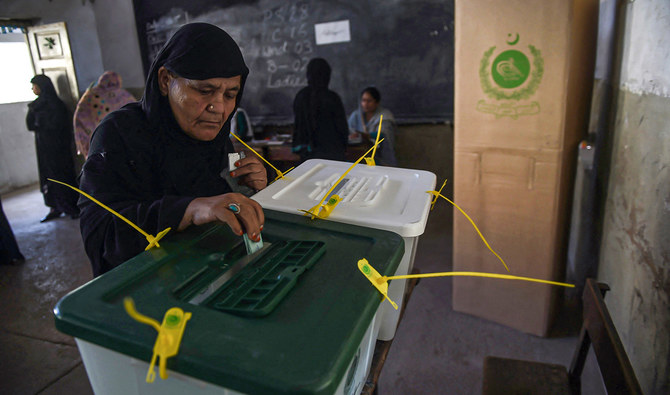KARACHI: Leading political parties in Pakistan's southern port city of Karachi have so far been unable to elect a mayor, almost a week after the long-awaited local government elections were held in the metropolis, with experts and political analysts saying a "hung mandate" was to blame for the predicament.
According to official results, the Pakistan People’s Party (PPP) grabbed the highest number of union council seats, 93. However, it fell short of the required number of seats, 124, to elect its mayor of the city. Another major Karachi stakeholder, the Jamaat-e-Islami (JI), bagged 86 seats.
The PTI has secured 40 seats but hopes it would surpass the JI's or the PPP's number of seats after votes are recounted in 43 union committees and by-elections are held in 11 administrative units where polls were postponed due to the candidates' demise. According to unofficial results, after recounting was conducted on some seats, the PPP has secured 96 seats, the JI 82 and the PTI 43.
Political analysts, however, were of the view that the delay in the appointment of a mayor was complicating problems for Pakistan's largest city, which is already facing complex infrastructure, water, sanitation, power outages and waste disposal issues.
“The mandate of Karachi is unluckily hung," Saeed Khawar, a Karachi-based analyst, told Arab News. "I see a long local bodies war,” he added. Saeed said he was foreseeing a toothless coalition in Karachi comprising the PTI and the JI, unable to deliver on its core promises.
Khawar said it was unlikely the JI and the PPP would form an alliance since the two parties were staking their claim for the mayor's post. “PPP can get a mayor [elected] by securing PTI’s councils if Imran Khan’s party disintegrates in the center," he said.
"But I don’t see this [as a] possibility right now,” Khawar added.
Amir Zia, a Karachi-based political analyst and senior journalist, said the JI was caught between a rock and a hard place due to the "controversial" local government election results.
“If the Jamaat-e-Islami goes with the PPP, it will be an unnatural alliance and an unpopular decision for mainstream Karachi," Zia told Arab News. "And if it makes an alliance with the PTI, this may not deliver as the powers in the current local government system are held by the provincial government [run by the PPP]."
He held both the Sindh Government and the Election Commission of Pakistan (ECP) responsible for the “unjust and discriminatory delimitation of constituencies”.
“The local government elections were controversial from day one. Three Karachiites have been counted as one," he said. "There are union committees of 90,000 people and then there are others with a population of 30," he added.
On the mayor's election, PPP's Karachi president Saeed Ghani said ethically and principally, the party that secures the highest number of votes should have its mayor elected. He said the PPP had secured the largest number of seats in the Karachi local polls.
“Our first priority is to work with Jamaat-e-Islami,” he told the media.
PTI's candidate for mayor, Khurram Sher Zaman, told the media it was still early to form alliances. "We have already won three and will grab 42 more after recounting. The by-election on 11 seats is also due," he said, hoping the results would take his party ahead of the JI.
He, however, ruled out that the PTI would consider an alliance with the PPP.
JI's Karachi chief, Hafiz Naeem-ur-Rehman, was equally adamant the party would have its mayor elected. “We will elect our mayor as the PPP cannot get their [mayor elected] alone,” Rehman said.
















